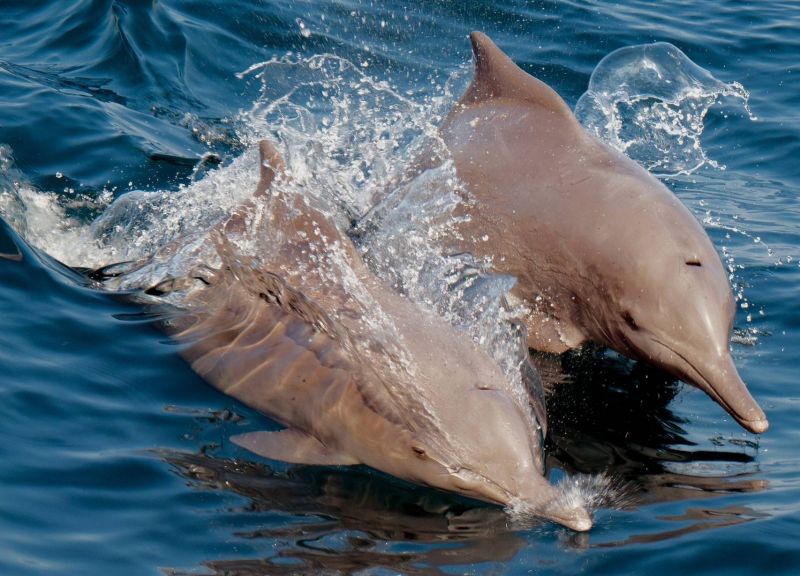
The endangered Atlantic humpback dolphin. (Credit: Dave and Carol Horlick)
The clever minds at Leo Burnett had a lightbulb moment when they thought, “Why not use animal voices to save biodiversity?”
To raise awareness about climate change and give voice to the silent and often overlooked animals facing extinction, they teamed up with the Society for the Protection of Nature in Lebanon (SPNL) and “Houmat al-Hima” for a campaign called “Endangered Voices.”
The campaign brilliantly recreates the iconic sonics of brands in the voices of endangered animals.
Assaad Serhal, SPNL Chairman, spoke to L’Orient-Le Jour about the innovative campaign. “In today’s top-notch ad campaigns, especially those of major global brands, sound logos are key,” he said. “These are the sounds that go hand in hand with visual logos, marking a brand’s identity.”
The potential reach across the networks of international brands — including vehicles, mobile phones, streaming services, you name it — is vast.
“These videos are shared across our social networks, and as the brands in question are tagged, we hope to draw their attention and that of their followers to the endangered species,” said Serhal.
Thousands of views
The “Endangered Voices” campaign kicked off this week on SPNL and Houmat al-Hima’s social media accounts, and it’s already making waves. A prominent Emirati streaming service responded positively, with the video garnering thousands of views — greatly beyond the usual reach of the association’s campaigns.
So, what’s the big-picture goal behind these NGOs catching the attention of major brands and their massive audiences? According to Serhal, a seasoned environmentalist, the impact is multifaceted.
The most immediate effect is on the followers of these big brands’ social networks.
“We’re already getting fantastic feedback from internet users,” said Serhal.
The bigger goal here is to convince these brands to swap their regular sound logo for the eco-friendly one suggested by environmentalists.
This move aims to engage them in an initiative that blends awareness-raising with biodiversity protection.
Serhal emphasized that brands are aware of the evolving public sentiment, and understand that their environmental actions matter to consumers.
Typically, these companies’ social initiatives revolve around donations, often flying under the radar.
“If we can get them to focus on a specific species and channel their environmental efforts into supporting local players in safeguarding the species’ habitat, wherever it may be, we all stand to gain,” Serhal said.
There is indeed a risk that involving big commercial companies in such a campaign might offer them an easy image boost while their actual environmental impact remains insubstantial.
Serhal was quick to acknowledge this concern. He emphasized that they are fully aware of the risk and take great care in selecting the companies they choose to collaborate with. It’s all about making sure the partnership aligns with genuine environmental commitment rather than surface-level optics.
The SPNL, under its chairman’s leadership, has willingly taken on the responsibility of creating and sharing these videos. But why choose a Lebanese association for a global campaign?
“The project’s creators approached us due to our extensive experience in biodiversity conservation, especially through our Hima network in Lebanon and beyond, which has earned us numerous global awards,” Serhal explained.
Hima, which means "protected area" in Arabic, is an age-old practice in the Middle East, and has been revitalized by SPNL in recent years. It involves safeguarding highly biodiverse areas with the collaboration of local stakeholders.
Adding to their credentials, SPNL is a member of Birds Life International and is the organization’s representative in Lebanon.
Protecting the world’s biodiversity is a matter of urgency. According to the 2022 Living Planet report by the World Wild Fund (WWF), there has been a staggering 69 percent decline in vertebrate wildlife populations worldwide in less than half a century.
This decline spans vertebrate groups including fish, birds, mammals, amphibians, and reptiles. The populations studied witnessed an alarming average drop of 69 percent between 1970 and 2018.
This article was originally published in French in L'Orient-Le Jour. Translation by Sahar Ghoussoub.